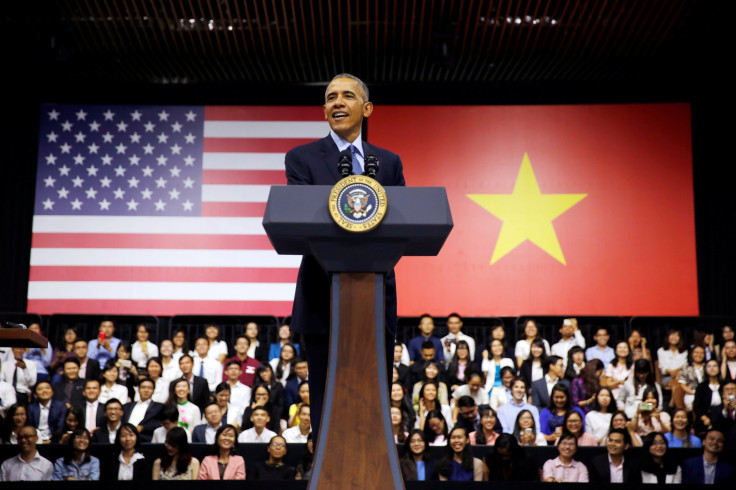G-7 Leaders Target China Over South China Sea Aggression; Vietnam Looks To Arms Procurement

Leaders of the Group of Seven nations, or G-7, agreed Thursday on the necessity of sending a strong message to China over its aggressive land reclamation and territorial disputes in the South China Sea.
Meeting in Ise-Shima, Japan, leaders from the U.S., Japan, France, Canada, Germany, Italy and Britain, said it was time for the group to issue a “clear signal” to China over the situation in the South and East China seas where territorial disputes are ongoing, Reuters reported. Japan and China both have claims to the Senkaku (known as the Diaoyu in China) Islands in the region.
China responded to the remarks, arguing that the situation in the South China Sea had “nothing to do” with the G-7. “China is resolutely opposed to individual countries hyping up the South China Sea for personal gain,” Chinese Foreign Ministry spokeswoman Hua Chunying said.
President Barack Obama visited Vietnam this week before arriving in Japan for the G-7 summit. While there, the president said “bigger nations should not bully smaller nations” in a clear shot at China. Obama has called on China to resolve maritime disputes peacefully while Beijing has accused the American leader of increasing tension in the region, with U.S. vessels conducting freedom of navigation patrols in the disputed waters.
While in Vietnam, Obama announced the lifting of a U.S. arms embargo on the former adversary. Vietnam is now looking to upgrade its air and maritime defense capabilities as uncertainty grows over China’s aggressive land reclamation in the South China Sea.
Sources told Defense News Hanoi is hoping to procure F-16 fighter planes and P-3C Orion maritime aircraft to increase their capabilities to patrol the waters. The government is also eyeing UAVs for aerial surveillance. A briefing by the U.S. Pacific Command obtained by Defense News underscored potential future cooperation between Washington and Hanoi.
“The SCO [Security Cooperation Organization] is manned and capable of providing in-country support and coordination for programs to expand U.S. defense article procurement ... and assist Vietnam in developing and sustaining professional armed forces,” the report said.
Vietnam, China, Brunei, Malaysia and the Philippines have all staked competing claims in the South China Sea. More than $5 trillion worth of trade passes through the resource-rich waters every year.
© Copyright IBTimes 2024. All rights reserved.






















